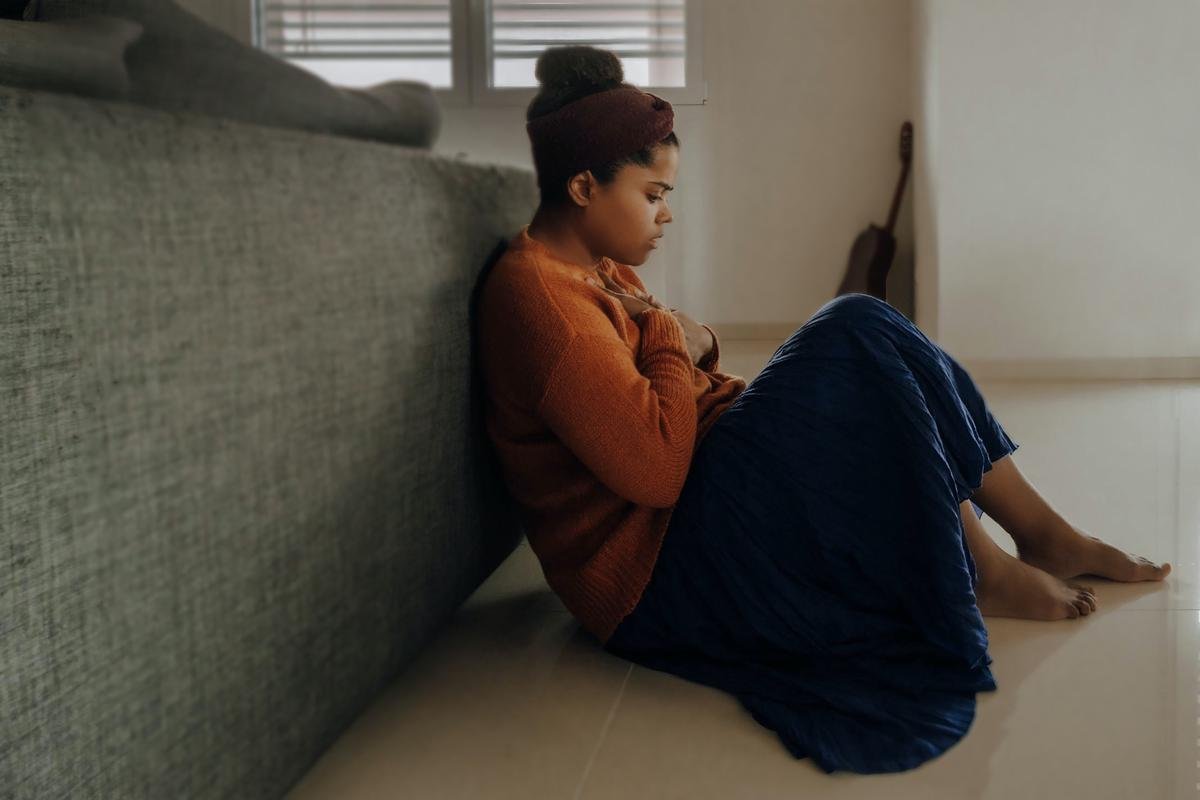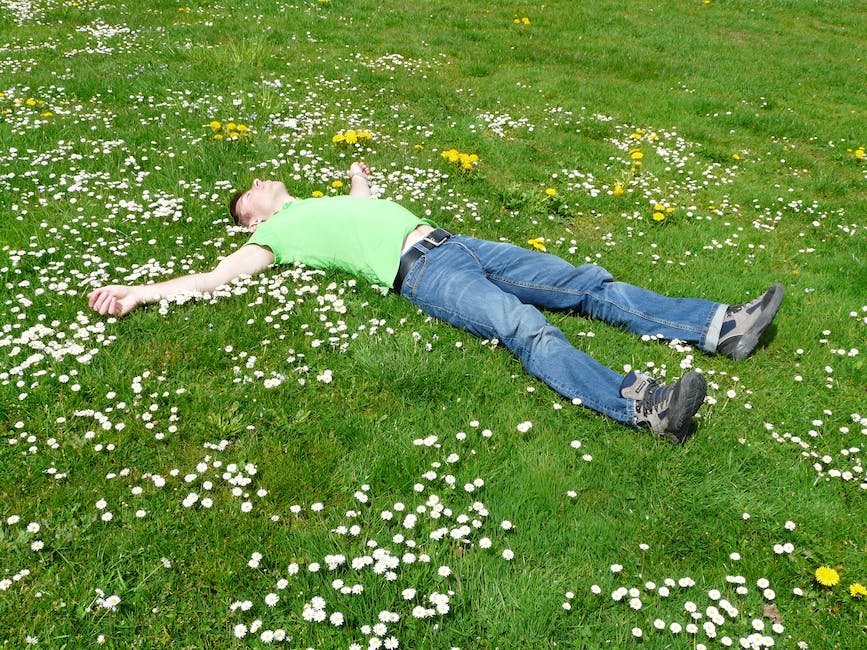
The challenge of ensuring a good night’s sleep for a child with autism can be an uphill battle for many parents and caregivers. Disrupted sleep not only affects the child’s health and wellbeing, but can also impact the entire family dynamics. This is especially true for autistic children, whose inherent sensory issues, anxiety, and difficulty transitioning can make an established sleep routine seem almost impossible. But, there’s hope. Through understanding how autism affects sleep, exploring various over the counter sleep aids, vetting their safety and effectiveness, and looking at alternative non-medicinal strategies, it is possible to craft a comprehensive action plan. Just as crucially, leveraging the advice of healthcare professionals can be invaluable in navigating this often fraught and frustrating journey towards restful nights.
Understanding Autism’s Impact on Sleep
Understanding Autism’s Impact on a Child’s Sleep Patterns
Being a parent involves a fair share of learning and growing. When it comes to children with autism, the curve tends to be steeper. As we journey together in this nurturing space, one of the many challenges we will address is the impact of autism on a child’s sleep patterns. Let’s unravel this delicate issue and shed light on how it may affect your family and how to cope.
Autism Spectrum Disorder (ASD) is known for its wide range of symptoms – social challenges, repetitive behaviors, speech and nonverbal communication issues, and others. One less frequently discussed aspect is its significant impact on sleep patterns.
Research suggests that sleep problems are more common among children with autism, affecting between 40% and 80% of children on the spectrum. Children with autism often struggle with insomnia, have trouble falling asleep, and experience frequent awakenings during the night. They may also face irregular sleep-wake rhythms, where there’s no clear pattern of when they feel tired or awake.
Scientists are still trying to pinpoint the exact reasons behind these sleep issues in children with autism. However, several potential factors can come into play. The child may have heightened sensitivity to environmental factors like noise or light, face trouble transitioning from daytime activities to bedtime, or experience anxiety.
Moreover, children’s sleep patterns might be influenced by irregularities in melatonin regulation. Melatonin, the “sleep hormone,” influences our sleep-wake cycles. Some studies suggest children with autism may produce this hormone in inconsistent amounts or at the wrong times of the day.
Physical problems such as sleep apnea, gastroesophageal reflux disease (GERD), or epilepsy—which often coexist with autism—may also disrupt sleep.
POSITIVE PARENTING APPROACHES TO SLEEP ISSUES
Without a good night’s sleep, a child can become irritable, have difficulties at school, and may exacerbate some of the autism’s behaviors. Therefore, it’s essential to be proactive in addressing the sleep issues.
Implementing a consistent, relaxing bedtime routine can help signal the child that it’s time to wind down and sleep. This routine could include reading stories, a warm bath, or soft music.
Creating a sleep-friendly environment is key. Consider blackout curtains, white noise machines, or weighted blankets to help the child feel secure.
Avoid screens before bedtime. We know electronics emit blue light that can suppress melatonin production and interfere with sleep.
Finally, don’t be reluctant to seek professional guidance if home intervention strategies fail to improve your child’s sleep issues. A sleep specialist, for instance, can provide specific recommendations tailored to your child’s needs.
Remember, every situation is unique, just like our beloved children. Let’s approach the sleep issues associated with autism with as much understanding, patience, and love as we muster and nurture sleep patterns supportive of their growth and development.
We embark on this journey for the growth and happiness of our children. Even with its challenges, remember the joy that comes from seeing them thrive. Together, let’s continue to build a nurturing community that supports each other, every step of the way.

Options for Over the Counter Sleep Medication
Keeping an eye on your child’s sleep quality is vital, especially when catering to the unique needs of kids with autism. This begins with understanding and exploring what options are available. So, let’s dive right into over-the-counter (OTC) sleep aids suitable for children with autism.
In the realm of OTC sleep medications, Melatonin is one of the most commonly suggested solutions for children with autism. Known as a natural sleep hormone, Melatonin helps regulate the body’s internal clock. It has been found beneficial in aiding autistic children who struggle with sleep initiation, helping them fall asleep faster. As an OTC supplement, it is readily available in many forms including pills, liquid, and chewable gummies. Remember to start with lower doses and only increase under a health care provider’s guidance.
While not necessarily a sleep medication, the supplement Omega-3 has been noted as potentially beneficial for promoting better sleep in children on the autism spectrum. Although its direct impact on sleep is still a subject of research, Omega-3 is believed to indirectly aid sleep due to its positive effects on brain health and cognitive processes.
Another medicinal herb to consider is Chamomile. Typically offered in tea form, Chamomile is known for its calming effects, potentially helping the child relax before bedtime. This gentle herb has been used for centuries to combat sleeplessness and occasional insomnia.
Valerian root is yet another herbal option considered beneficial for inducing sleep. Often available in capsule or liquid form, it has been linked to improving the quality of sleep and reducing the time it takes to fall asleep. Be sure to consult with a healthcare professional to determine a safe dosage for your child.
The last on the list is Magnesium. Scientific studies suggest that a Magnesium deficiency could potentially trigger sleep problems. Adding a Magnesium supplement to your child’s routine might significantly improve their sleep quality. It is available in various forms like capsules, powders, and even topical oils.
While all these OTC options may offer some relief, it is crucial to remember they should be considered as part of a wider, holistic sleep management strategy, and not the sole solution to sleep problems. What’s more, every child with autism is unique and may react differently to these substances. Therefore, seeking guidance from your healthcare provider or a sleep specialist before trying any sleep aid is strongly advised.
In the same spirit, it’s also essential to bear in mind that not every sleep problem requires pharmacological help. Ensuring lifestyle modifications, like maintaining a regular bedtime, engaging in daytime activities, having balanced nutrition, and keeping a sleep-friendly environment can work wonders in managing your kid’s sleep routine.
This journey, like many aspects of parenting, requires patience, trial, error, and above all, lots of love. After all, every small step taken towards ensuring the right sleep quality can lead to big strides in your child’s overall wellbeing and development!

Safety and Effectiveness of the Medication
Addressing Safety Concerns Around Over-the-Counter Sleep Aids
Understanding and managing your child’s sleep habits is a crucial part of parenting, more so when navigating the complexities of autism. Once the positive practices are in place, optimum sleep environment is created, and expert advice has been sought, often, parents still find themselves considering over-the-counter (OTC) sleep aids. It’s a decision that’s not to be taken lightly and requires a deep dive into their safety and effectiveness.
Over-the-counter sleep aids such as melatonin supplements are often suggested to manage sleep disorders. While studies show melatonin can help regulate the sleep-wake cycle, its long-term effects are still being researched. Therefore, it’s crucial for parents to remain cautious about its dosage and frequency of use.
Omega-3 fatty acids, found in fish oil and flaxseeds, have also been linked with promoting better sleep. While they are generally safe, large doses can lead to side effects, including blood clotting disorders, lowered immunity, and vitamin E deficiency.
Then there are traditional herbs like chamomile and valerian root. While chamomile is a calming herb that may help relax the nerves before bedtime, valerian root has been associated with improving sleep quality. However, both these herbs have sedative properties and might cause drowsiness or sluggishness in the daytime.
When evaluating mineral supplements like magnesium, it’s essential to know that while magnesium deficiency can contribute to sleep problems, excessive use can cause digestive issues, excessively slow heartbeat, and low blood pressure.
In light of these potential side effects, a discerning approach is essential. Every child’s body is unique, and what works for one might not work for another. This underlines the importance of consulting a healthcare professional before trying any of these sleep aids. A doctor or a pharmacist can provide expert guidance based on your child’s weight, age, overall health, and specific sleep challenges.
A harmonized sleep management strategy should be balanced with broader lifestyle changes. Regular physical activity, a well-balanced diet rich in fruits, vegetables and whole grain, and reduced screen time can all contribute to better sleep and overall health for children with autism.
Parenting is not about perfection. It’s about loving your child unconditionally and doing the best you can in fostering a safe and enabling environment. The relationship between sleep and a child’s overall well-being and development cannot be overstated. While the journey might be challenging, each milestone achieved makes it all worth it. Pursuing safety and efficacy when considering sleep aids is just another expression of that unwavering love and commitment. Therefore, always remain dedicated, patient, and diligent when undertaking measures to enhance your child’s sleep quality.

Alternatives to OTC Meds for Good Sleep Hygiene
Non-medicinal Strategies for Enhancing Sleep Hygiene in Autistic Children – Part Two
Our children with autism deserve the blissful and refreshing gift of a good night’s sleep. In this second part of our discussion on non-medicinal strategies for improving sleep hygiene in autistic children, we will delve deeper into the subject. Let’s explore some additional practical techniques that can, hopefully, assist your journey through the delicate world of autism and sleep.
Mindful use of Dietary Intervention can affect sleep. The body’s sleep-wake cycle, or circadian rhythm, is closely linked with diet. Certain foods could potentially interact with this cycle to promote better sleep. A few autistic kids might react positively to a gluten-free, casein-free (GFCF) diet, which has been observed to help with digestion problems, thereby possibly improving sleep. Always consult a dietitian before drastically altering your child’s diet, as everyone’s physiology is unique.
Sensory Integration Techniques can also be a savior. Some children with autism have heightened sensory sensitiveness that might interfere with their sleep. Strategies like integrating calming, sensory stimuli into the bedtime routine could prove beneficial. This might include soft and relaxing music, certain calming scents like lavender, or textured blankets that provide a soothing, tactile experience.
Adequate physical activity during the day cannot be overstressed. Regular exercise is beneficial not only for physical health but also for regulating sleep patterns. Incorporating play and movement throughout the day can help your child deplete energy reserves and prepare the body for rest. Weather-permitting, try fun outdoor activities.
Optimal bedroom temperature is key. A room that’s too warm or too cool could disrupt sleep in any child, more so in children with autism who might have heightened sensitivity to external stimuli. Ensuring a bedroom temperature around 65-70 degrees Fahrenheit (18-21 degrees Celsius) could contribute to better sleep.
Hyдроtherapy could be another potential tool to explore. It involves using water — in the forms of baths, showers, or even swimming activities — to soothe and relax the body. A warm bath before bedtime could potentially help unwind and promote the readiness for sleep.
Last but not least are stress and anxiety management techniques. Children with autism often experience heightened levels of anxiety, which could likely affect sleep. Teaching these wonderful little humans relaxation strategies like deep breathing exercises, progressive muscle relaxation, or guided visualizations could potentially reduce bedtime anxieties and promote a smoother transition to sleep.
Every strategy mentioned, from diet alteration down to anxiety management, underscores the fact that there are indeed several ways beyond medication to tackle sleep issues in children with autism. While each child with autism is unique and different tactics will work for different children, the shower of love and understanding while trying these strategies is the subtle thread that weaves them together.
As parents and caregivers, our role is critical. Patience, empathy, and effort are the magical trio that makes the voyage smoother. So, here’s to emboldening you in your pursuit of finding that perfect recipe for a good night’s sleep for your child with autism. Believe us when we say, you’re doing a great job already! Gently remember, nothing worth having comes easy. Good sleep surely is a gift worth giving to your child with autism. They deserve it. And so do you.

Consulting a Healthcare Professional
Professional Consultation: The Key to Safe OTC Sleep Aid Use for Children
Kids and sleep issues almost go hand in hand. When life is a vast adventurous playground, why would anyone want to waste time sleeping? This situation, however, can be magnified when it owns a child with autism. Since we’ve already thoroughly traversed the landscape of common sleep-related issues in children with autism, let’s improve our understanding of why professional consultation is crucial before turning to any over-the-counter(OTC) sleep aids for your little ones.
Over-the-counter sleep aids, while popular, are not devoid of potential harmful effects. They should be used mindfully and only after truly evaluating the need. Interaction of these aids with other medications, potential allergic reactions, or the risk of habit-formation are concerns that shouldn’t be dismissed lightly. Always remember, when it comes to our children’s health, caution is never overrated.
Remember, each child will have unique needs, and just like there is no ‘one size fits all’ solution in sleep management, there isn’t a universal over-the-counter sleep aid that works wonders for all. A healthcare professional brings invaluable insights to the table by individualizing treatments based on thorough assessments and knowledge of your child’s health history.
Consider lifestyle modifications for better sleep. A few minutes of mindfulness, such as gentle yoga, can help slow down the pace and relax. Encourage regular physical activity during the day – it’s not just great for their energy levels and overall development, but also for a good night’s sleep. Keep the bedroom temperature optimal – a cooler room promotes better sleep.
Ever heard of the calming effects of water? Hydrotherapy may be another viable option in stress and anxiety management. So, a warm bath before bed could very well make that trip to the dreamland easier.
We also want to emphasize sensory integration techniques. Some children with autism typically tend to be hypersensitive to their environment. Understand your child’s sensory preferences to develop a conducive sleep environment for them. This could mean using the softest sheets, installing sound-proofing on the walls, or choosing low, warm lighting.
Lastly, each meal consumed plays a role in how well that sleep clock ticks. Lean towards a balanced diet. Certain foods, aromas, massages, or even herbal teas can improve the quality of sleep. But, these too should only be incorporated after discussing with a healthcare professional.
Parenting an autistic child, while beautiful, is challenging. Sleep issues add another twist in the turn. In this journey, it is crucial to ensure our decisions are informed, measured, and personalized. Consulting professionals before using OTC sleep aids can help navigate these rough waters, ensuring the utmost care for our little ones, while potentially alleviating some of their sleep-related issues.
While sleep management might feel like a puzzle, it’s essential to remember that with love, patience, and diligence, ideal solutions can be found. Embrace the journey of parenthood, understanding that it will be filled with a fair share of challenges, but also so many successes – each sleep filled night, a triumph of its own.

Dealing with sleep issues can be a complex process, particularly in the case of autistic children. But an informed approach can make a significant difference. The role of OTC medications, when combined with a sound understanding of autism’s impact on sleep, can indeed provide a path to more peaceful nights. Non-medicinal strategies are also effective allies in this mission, often acting in tandem with medication or even on their own. Yet, underline it all, the indispensable role of a healthcare professional remains. They possess the ability to offer tailored, specific advice considering many unique situations and considerations that one-size-fits-all information might overlook. Armed with knowledge, guided by experts, a route to good sleep hygiene for autistic children becomes clearer and ever more attainable.




